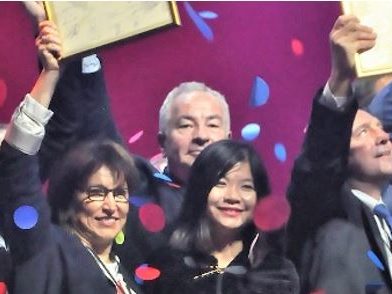Protecting vulnerable workers – Prevent risks of abusive working conditions
Improving both working conditions and economic performance is possible
Between 2013 and 2015, RHSF experienced complete immersion in a Chinese factory with 1,000 employees. In partnership with this factory and the French client company, RHSF launched an initial experiment focusing on remuneration, to initiate a successful change in human resources management practices. The results speak for themselves:
- Significant and sustainable reduction of excessive overtime
- … while increasing the pay for workers;
- And sustainable improvement of health and safety conditions.
With positive collateral effects for the factory:
- Important reduction in the turnover rate;
- Improved quality and productivity.
Five years later, the system set up in this Chinese factory has enabled it to cope better with the coronavirus crisis. Its measures were supported by the employees, while strikes were taking place in neighbouring companies.
This project is proof that improvement in human rights and working conditions is possible, while at the same time improving product quality and productivity.
An award-winning project

Our goal was to reduce overtime without reducing wages, while improving quality and productivity, integral to a CSR policy. A difficult task in China, where employees and managers believe that wage increases can only come from overtime, even at the risk of their employee’s health.
- Bronze medal in the “Business Innovation” category at the 10th edition of the Purchasing Trophy
- Atlas AFMI CCMP Award for Best Management Case 2015
Lessons learnt and disseminated
This project provides proof that an appropriate HR policy is the essential foundation for the implementation of a CSR policy among subcontractors. The client and the subcontractor have agreed to review their policies, the former by adopting a responsible purchasing policy, the latter by reconciling HR and CSR with their economic interests.
Today RHSF is implementing the lessons learned from this project in three subcontracting companies in China and has developed a training program in Chinese for subcontractors.
After having shown how to initiate responsible human resources management in a factory, RHSF now intends to take up two challenges:
- To test and disseminate a reinforced method of responsible workforce management that is accessible in different industrial contexts;
- Going outside the factory walls to prevent risks related to the recruitment of labour.



